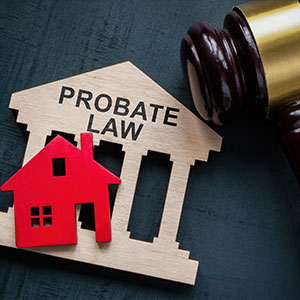
When the wealthy financier, Jeffrey Epstein, died under mysterious circumstances (the Medical Examiner determined that is a suicide, but many people are skeptical), he left behind a huge fortune close to $600 million, along with creditors and lawsuits. Just two days before his death, he signed his Will, which left his estate to his trust, the 1953 Trust. Because that Trust is not filed with the Court, its contents should remain private, barring litigation involving the Trust’s beneficiaries or trustee’s duties. In the Will, Epstein is listed as a resident of the U.S. Virgin Islands. After his death, his Will was filed in the U.S. Virgin Islands, probably because his attorneys thought the probate process would be more private. For regular people who are not rich or famous, privacy is still a huge deal. That is why many people opt for using trusts in their estate planning, instead of just relying on a Will. Here are some important differences between a Will and a Trust: Will Characteristics: A will goes into effect only after you die A will only covers property that is in your name at your death A…Read More

This article is part of a series discussing the true costs and consequences of failed estate planning. The series highlights a few of the most common—and costly—planning mistakes we encounter with clients. If the series exposes any potential gaps or weak spots in your plan, meet with us to learn how to do the right thing for the people you love. If you’re like most people, you probably view estate planning as a burdensome necessity—just one more thing to check off of life’s endless “to-do” list. You may shop around and find a lawyer to create planning documents for you, or you might try creating your own DIY plan using online documents. Then, you’ll put those documents into a drawer, mentally check estate planning off your to-do list, and forget about them. The Problem Is, Your Estate Plan Is Not A One-And-done Type Of Deal In fact, if it’s not regularly updated when your assets, family situation, and/or the laws change, your plan will be totally worthless when your family needs it. Moreover, the failure to regularly update your plan can create its own unique set of problems that can…Read More

Probate is the legal process through which a deceased person’s estate is properly distributed to heirs and designated beneficiaries and any debt owed to creditors is paid off. In Florida, there’s Summary Administration and Formal Administration. The main phases of administering an estate involve: Gathering, identifying and valuing estate assets; Identifying, and satisfying creditor claims and paying final taxes; and Distributing the balance of the estate assets to the intended beneficiaries. Probate is not evil. But it is not a fast process and families often get frustrated with the process and stressed about paying creditors. The most common complaints about probate include the following: It takes too long. It costs too much. It’s a public process, involving a judge. In our experience, one of the main stumbling blocks we see for families involved in probate is gathering information about their loved one’s accounts, properties and creditors. And in many cases, families aren’t able to figure it all out. We can guide you every step of the way. Call us at [number] to schedule your free consultation.Read More
